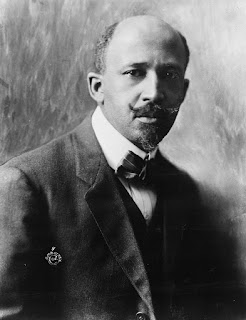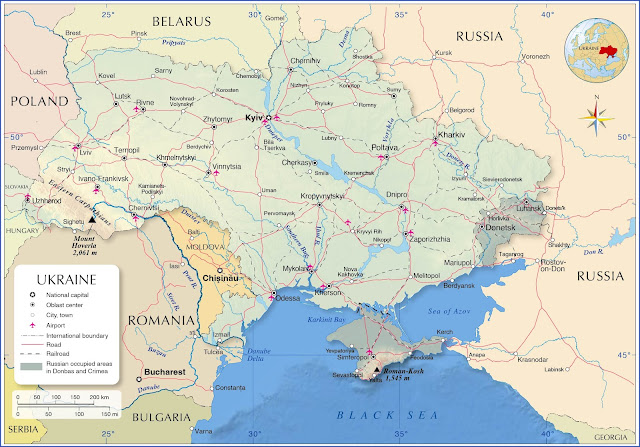by Jackie Murray and Rebecca Futo Kennedy
Dr. Jackie Murray and I recently wrote a short piece for ESPN’s The Undefeated reflecting on the history of Black engagement with the Greco-Roman past in the United States in light of the closure of Howard University’s Classics department. The original essay was bout 2500 words longer, of course, because Jackie and I are like that. What got cut (rightly for the venue!) was a more detailed discussion of the fierce debates between Emancipation and the end of Jim Crow over what right, if any, Black Americans had to higher education and how a Classical liberal arts education was linked to the idea of voting rights and full equality. We have decided to publish that material (which will appear in various other guises in books and articles we are both working on separately and together) here at the blog. We hope you will read it in tandem with our piece at The Undefeated.
PS. Working with Morgan Jerkins for the The Undefeated essay was amazing. She is such an impressive editor and really got the best out of us. We recommend you check out her books.
***
It is inarguable that without an education system made up of the extensive study of Greek and Roman languages and culture, the standard liberal arts education up until the mid-20th century, there could be no “American” culture. This includes African-American culture. Black abolitionists Phillis Wheatley and Frederick Douglass immediately spring to mind, but a whole host of Black intellectuals and artists used their Classical education to undermine any and all uses of ancient Greeks and Romans to justify slavery and racism. Education in classics gave and still gives Black thinkers and artists fluency in the cultural language that undergirds the architecture of American empire to show that a white supremacist empire was and is, in John Levi Barnard’s words, an “empire of ruin.” For every white supremacist invocation of the classics there has been an equal invocation in the name of Black liberation, anti-racism, and equal rights.

Chesnutt’s novel is crucial to understanding the centrality of classics in the fight for Black equality. The struggle between his protagonist, the prosperous Black physician Dr. Miller, the son of a slave, and his antagonist, Confederate Major Carteret, who are both descended from the same white planter, exposes the moral bankruptcy of slavery and white supremacy and the false narrative of Black inferiority. Significantly, the virtues of Miller’s side of the family are enumerated by Mr. Delamere, “who read the Latin poets, and whose allusions were apt to be classical rather than scriptural.” Through Dr. Miller’s achievements in medicine, which could only have come with a classical education, Chesnutt makes the argument for the benefits that educated Black people can offer the Black community as well as US society in general. He even attributes to Miller a recognizable Black-centered vision of antiquity and inversion of the white supremacist march of civilization:
“The negro was here before the Anglo-Saxon was evolved, and his thick lips and heavy-lidded eyes looked out from the inscrutable face of the Sphinx across the sands of Egypt while yet the ancestors of those who now oppress him were living in caves, practicing human sacrifice, and painting themselves with woad — and the negro is here yet.”
Crucial to Chesnutt’s argument was a defense of the Fourteenth Amendment. As John Levi Barnard notes, Chesnutt’s novel fits within “a continuous tradition of [b]lack classicism as political engagement and historical critique across at least two centuries.” Like all anti-lynching activists and Civil rights leaders during the rise of Jim Crow, Chesnutt saw the resistance to Black education, especially Black classical education, for what it was, part of the effort to curtail Black voting rights in the south and to cement the apparatus of segregation in the South and even extend it to the North. And they were right.
James D. Anderson in his monumental study, The Education of Blacks in the South, 1860-1935, observes that any Black institution in the early 1900s that emphasized classical liberal education was attacked as impractical and “not geared to prepare [Black] youth for useful citizenship and productive efficiency.” He quotes Wallace Buttrick, a trustee of the Rockefeller Foundation and an assessor for the General Education Board (GEB) who opposed funding Black schools that taught a classical liberal arts curriculum. Expressing views that resonated with Booker T. Washington’s, Buttrick advocated that Black schools be “‘Hamptonized’ (as far as is practicable),” eliminating Greek and Latin, “to say nothing of piano music and the like.” Buttrick (along with most of the GEB) supported segregationism and white supremacism.
Buttrick’s use of “Hamptonizing” captures the dominant white supremacist ideology about the purpose of Black education: to train Black youths to perform their role in the social hierarchy and in the caste system based on the principle of a division of labor according race for their economic advantage. In other words, Hamptionized Black institutions were not supposed to produce Black intellectual or political leaders, but a source of cheap underclass labor.



Dixon’s novel and the plays based on it provoked a revival of the Ku Klux Klan. By presenting Black men, especially classically educated, vote-wielding black men, as lecherous threats to white womanhood and menaces to society in general, Dixon deliberately sought to entangle the debate over Black education and political equality with white terrorist violence. His works, which were wildly popular among white northerners as well as southerners, corresponded with an uptick in lynchings. In 1905, a staging of the Clansman turned into a race riot that prefigured the Atlanta massacre that would happen a year later.

We focus on Dixon and his attack against Black education because most Black leaders at the time wrote and spoke out against him and his works, and because his works produced deadly real-world effects in the form of racial violence, lynchings, and even bombings. Drusilla Dunjee Houston, writing for the Black Dispatch about the Tulsa Massacre, directly linked Dixon’s novels and plays and their glorification of the KKK in the lead up to the event to the racial hatred that fired the horrific attack. The education white students received in high schools and colleges across the South shaped their acceptance of racial segregation and susceptibility to condoning or even participating in the acts of racial terrorism that defined the Black experience in the early 20th century.
Even when Black people migrated from the south, they still had to fight to gain access to the same kind of liberal education offered in predominantly white northern schools and colleges. In many cases, knowledge of Latin––rarely taught outside private schools––was an entrance requirement. In other words, classics functioned as a gatekeeper, restricting access to top-ranked universities, the training grounds of future leaders, the elite, white men (and occasionally women) who became the new Alexanders and Caesars of politics, industry, and the military. College campuses buildings with large white columns, random inscriptions in Latin or ancient Greek, and statues reminiscent of ancient bronze and marble sculpture.
Under Jim Crow, in both the white schools and at both northern and southern universities, the Latin textbooks they studied were (and still are) filled with stories of “happy slaves” that describe beatings of “lazy slaves” as morality lessons. As historian Lyra Monteiro has shown, in the years before the Civil War, a white supremacist grammar of landscape and architecture also developed connecting whiteness to neoclassical architecture, modern designs that incorporate elements of ancient Greek and Roman architecture, especially monumental white columns. The wealthy, slave-owning elite constructed visual echoes of the architecture of ancient Rome on plantation mansions and civic buildings, like the US Capitol, to justify their slavery based empire.

Black leaders pushed back against this racist discourse. They centered a more accurate interpretation of Greek and Roman antiquity in their argument for the power of education to uplift the formerly enslaved. Kelly Miller undermined the racist Social Darwinist premises of Dixon’s The Leopard’s Spots. In his open letter, he argued that so far from being at the bottom of the so-called hierarchy of civilizations and intellectually inferior by nature, as contemporary racist thinking held, black people had achieved heights in literature, art, sciences as well as in the professions in a mere generation after emancipation. His own classical education and achievements proved that Black students taught in Negro schools and colleges were just as adept at Greek and Latin as the best white students who had their education at elite schools.
The anti-Black terrorist violence and repression that Dixon and others stoked was deliberately designed to keep Black people in an inferior economic and social place. Consequently, it led to the great migration North in the 1920s. Significantly, it is this move north that gave many of the leading lights of the Harlem Renaissance access to the classical education curriculum. In Miller’s contribution to the anthology credited with launching the movement,The New Negro, compiled by Alain Locke, chair of Philosophy at Howard, he pointed to the original intentions of Howard’s founders to educate students to reach their full-potential through liberal arts education. Ironically, his claims about the disparity between the endowments white universities receive and those Howard receives are echoed by Carter and Hogan. However, Miller decried the over-privileging of the professional and vocational training at the expense of education in the liberal arts.
“The ideal is not a working man, but a man working; not a business man, but a man doing business; not a school man, but a man teaching school; not a statesman, but a man handling the affairs of state; not a medicine man, but a man practicing medicine; not a clergyman, but a man devoted to the things of the soul. Only upon such a platform, the writer submits, could Howard University justify its claims as the national University of the colored race.”
Kelly Miller strongly advocated for the kind of classical liberal arts curriculum that he studied himself and was adamant that if Howard University aspired to a national Black university, it must be “a conscious and recognized center of the higher life and cultural interests of the race.” And he did so knowing that teaching classics at Howard was an affront to white supremacists who fought to deny Black students access to it, even with violence.

[this was also cut from/condensed in the ESPN essay]
The humanities give students what Black classicist and political scientist Danielle Allen today calls verbal empowerment. In the tradition of W.E.B Du Bois and others, Allen emphasizes that the critical reasoning skills that come from exposure to different perspectives and modes of thought are what an informed citizenry thrives on in a democracy. Classics is a microcosm of humanities education, its interdisciplinary scope encompasses all the liberal arts––history, language, literature, philosophy, art, natural sciences, and more. And because, as we have mentioned, ancient Greece and Rome have been made to serve American white settler colonial racescaping, a robust humanities education that includes the Classics, gives students, not only an additional vantage on human dilemmas from outside our modern pinhole-camera, but also the capacity to read, deconstruct and overwrite our cultural programing, as it were, in more equitable and just terms.
Being able to learn from the mistakes of history, being able to imagine a more just future does not come from whatever job training the next economy is clamoring for. The insight into how to change our world for the better comes from studying history, reading and writing literature, contemplating and making art, learning languages and different ways of thought. Thus verbally empowered, the debt-peons among today’s college graduates, even if they can’t effect real change in the world, can at least fend off the relentless anti-democratic white supremacist messaging bludgeoning of their psyche day in and day out. As Du Bois recognized long ago, to deny an full education (which to him included a strong classical education) only served to perpetuate illiteracy and poverty among Black and poor white people alike.
As a discipline, Classics is undergoing a reckoning with its investments in whiteness. Some administrators see this moment as an opportunity to prune away more of the humanities at non-elite schools. Classicists have never really tried to justify the field’s existence without reaching for elitist and even racist discourses. However, cutting Classics at a place like Howard demands a response that makes no such appeals.
The loss of the classics program will contribute to the very educational apartheid that Hogan and Carter highlight. Today a tiny wealthy (predominantly white) minority notoriously hoards educational resources––their money secures access to the most prestige-conferring institutions, which, not coincidentally, offer the fullest array of arts, sciences, and humanities. Poorer colleges and universities feel pressured to close their Classics departments or public high schools to eliminate their Latin programs. But these cuts only relegate Classics to predominantly white, elite-serving institutions, which process, of course, the reinforces the racist construction of Classics as “for whites only.”
This system is driven by the super-rich donors and corporate CEOs who sit on boards of trustees of elite- and non-elite-serving institutions, protecting the brand of the former for their offspring by pushing the latter to become glorified training centers for debt-laden graduates who will eventually flood the job-market of the very industries they represent, driving up the profits by driving down the wages of college-educated labor. University presidents are rarely ever academics who prioritize quality teaching and research. They are almost always pseudo-CEOs who are paid true one-percenter salaries and who treat higher education like widget-making for the labor market. Since their edu-factories that are supposed to produce highly-skilled, heavily indebted, and docile workers, in their calculus the arts and humanities, and classics in particular, are first to go. In Howard’s case, we are told that a department like Classics is too costly to maintain––a ridiculous claim on its face. What we aren’t told is that a president making 7 times what a full professor makes and an administration with a budget that dwarfs that of several departments two and three times over are too costly to maintain.
The closure of Howard’s Classics department as well as other humanities departments in public and non-elite colleges threatens to entrench educational and economic disparity. Poor and working class students go into debt to get training in a job that will be obsolete before they ever become solvent. Whereas if they earned along the way the skills that the humanities cultivate they would be more flexible and able to make earn in the long run. The (predominantly white) sons and daughters of the one-percent don’t have these problems: by virtue of their wealth, privilege, and status, they get access to the full range of educational options and graduate college as the heirs of “Western Civilization”, just like their Gilded age counterparts.



















